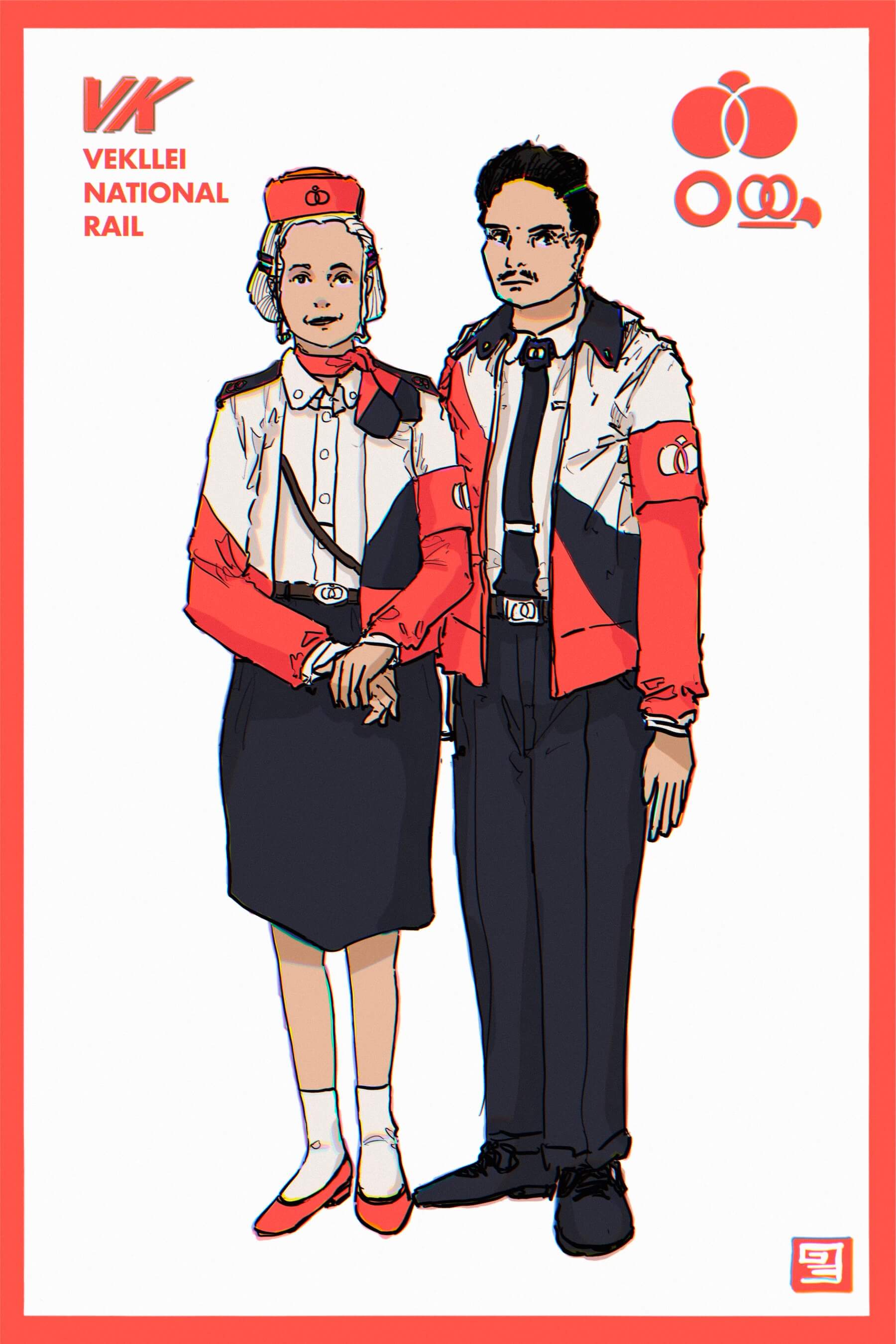NEW Story: Cocktail
The People of Vekllei National Rail

Vekllei National Rail, or VNR, is one of those organisations caught somewhere between a faceless government enterprise and a family member.
Almost every Vekllei person rides a train each day, and that train is operated by VNR, which has a monopoly on rail travel and operation. Very few people know exactly what ‘VNR’ is. Is it a government department? A state-owned company? Or is it a “bureau” — the Vekllei word for a collection of companies?
Don’t worry about it. Someone Tzipora knew called it a state-owned, bureau-backed “organ” of Vekllei, and that was enough for her. Someone in the Atlantic wrote a column the other day about horror films failing to capture sales in Vekllei. And why should they, Tzipora thought, when their lives are already a horror? Ask anyone how the Vekllei economy works and watch real terror reveal itself.
VNR runs the trains, and employs about 60,000 people in its operations, which range from locomotive engineers to copy editors for rail enthusiast periodicals. The privately-run, state-owned, bureau-backed sub-organ of the Transport Requisite of the Vekllei Government known as VNR maintains a fleet of rolling stock across a variety of types and track gauges, including steam locomotives and experiments in nuclear-electric maglevs. All of this bankrolled carelessly through the National Rail Insurance Scheme A.r.R., which prints as many labour-backed government White Bonds as VNR can spend.
The people illustrated here are VNR Attendants, professional people-pushers and friends of the rail-travelling public, who work on trains and platforms guiding, managing and assisting people. In Vekllei, most public-facing work is performed by the elderly, conscripted or socially-inclined. Although VNR has existed since independence, and is more or less the ancestor of the prewar Junta rail monopoly in floral-period makeup, its uniforms were overhauled in celebration of “250 years of rail” in 2055. Their jackets display Vekllei’s optimism in the future of plastic-based fabrics in fashion.
Like most work in Vekllei, their appearance is professional but their manner is informal.
“What are you doing there?” Who, me? “Yeah, this is your line mate. Yellow, just keep following yellow, all right?”
Their shifts are short, but platform work is boring. Most trade shifts to get as much time on the trains as they can, where they can enjoy Vekllei’s exquisite scenery from some of the world’s finest public transport.